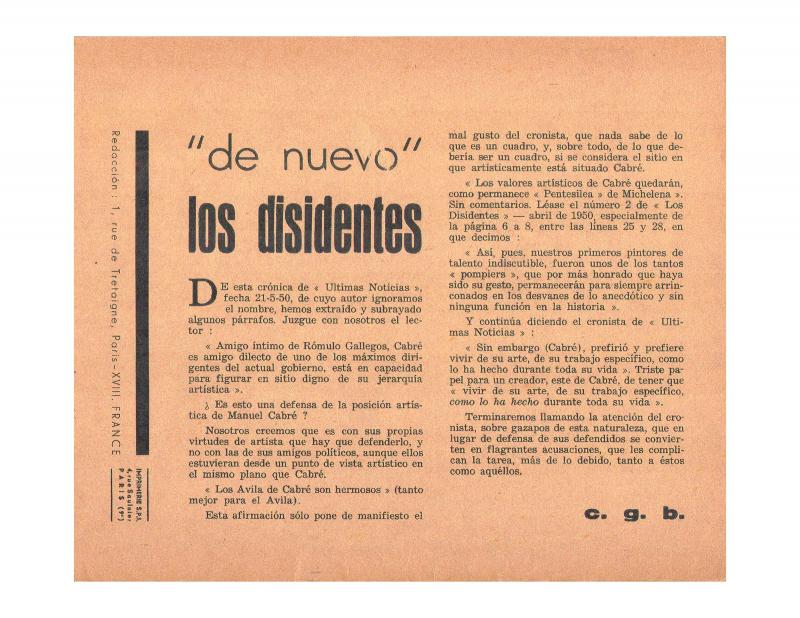This review, “De nuevo Los Disidentes,” is an interesting document because it expresses what a majority of the public, including many intellectuals in Caracas, were thinking and saying in the early 1950s. Despite the brevity of the piece—and over and above the fact that it conveys the reviewer’s sharp reaction to the dissidents’ approach in phrases such as “quite honestly, this issue of Los Disidentes would make anyone’s hair stand on end” and “the Caracas School will be swept away amid horrifying shrieks of victory—it testifies to the critics’ and the press’ values and opinions at that particular point in time. This becomes apparent in the judgment (rather than analysis) of the artists in the dissident group and the works they produced in Paris. When one speaks of an artist, one ponders his moral honesty; as regards his works, they are credited (or not) with inherent, permanent values. The review also contends that an artist acts according to his vocation and temperament; and that a work of art is influenced both by its environment and by its particular period. The authors (or perhaps there was only one) of the review could not tolerate “the disrespectful manner” in which an honest man and artist such as Manuel Cabré had been treated by Carlos González Bogen in his article about the landscape painters at the Escuela de Caracas (Los Disidentes Nº 2, Paris, 1950), since Cabré was a distinguished figure in contemporary Venezuelan visual art circles. One of their claims concerning Cabré’s qualities is that, as a good friend of powerful government officials, he could have been appointed to high positions if he had wanted to do that; instead, however, he chose to live off his art. This opinion concerning the valuing of an artist and his work was one of the points that González Bogen replied to in his following article, “‘De nuevo’ Los Disidentes” [see doc. no. 813667], which appeared in the 5th issue of Los Disidentes magazine.

